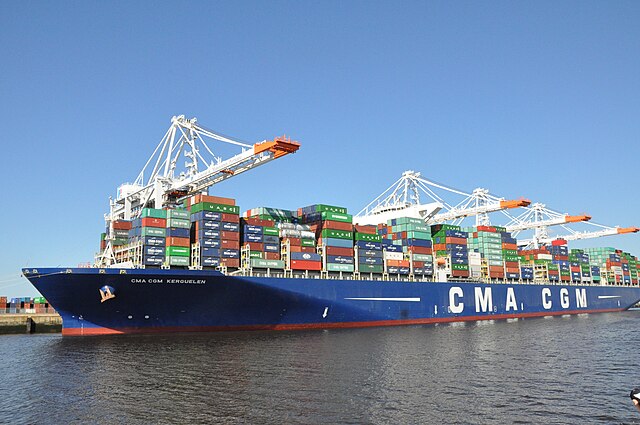Port Plights: A Summary of the 2024 Port Strike

The Port Strike that promised to deliver ended after two days. Amid the busiest shopping and shipping season of the year and 2024’s presidential race, the contracts of the International Longshoremen’s Association are up for renewal. A pay increase and safer working conditions are being demanded from the Maritime Alliance, and the union knows the power they hold.
In the first walkout since 1977, the ILA rallied for higher wage benefits after the surges in trade post the COVID-19 pandemic. The working conditions on the port after the pandemic was hectic, as the industry suffered an $8 billion dollar loss over three years.
What's on the line?
With more senior workers earning a pay of $39 dollars per hour, the 62% increase in pay will take place over the next six years, offering a bump to up to $63 dollars per hour. Since the job requires heavy onsite training, union leader Harold J. Daggett’s son, Dennis A. Daggett, is still asking for higher wages for less experienced members.
Negotiating with the Maritime Alliance, the six-year increase was not the original asking price of the ILA, but a price point higher than the Alliance had originally wanted to agree upon. The compromised price does not include better retirement benefits- a key feature most ILA workers would like improved. Most longshoremen carry through their career until retirement and can sustain long term injuries in working closely with heavy machinery. While the retirement payout may have not been raised the Alliance agreed to procure stronger and safer working conditions for the East Coast Union.
The strike’s fruition and resolution could not have come sooner. Nearing the 2024 presidential election, the Biden Administration worked with both coalitions to find a compromise making noise in Washington from Tuesday to Thursday evening. The timeline of events was sparked by the ending and interim period of contracts for East Coast Port workers this past September, intensifying the annual calamity, given the end of the 2024 fiscal year for the US economy, the very tight presidential race, and the holiday season. The match was ready to strike, and the Maritime Alliance clearly noted the situation's severity, as the strike lasted under 72 hours with all sides agreeing the “patriotic” thing to do was resume work given the detrimental effects of Hurricane Helene on the southern United States.
Biden’s Potential Input
Awaiting the ripple effect of the port’s closure, tentative business executives called on Biden to invoke the Taft-Hartley Act of 1947, a piece of legislation most of the public is not familiar with. Post WWII, the Taft-Hartley Act would prevent unfair action from union workers in case of a strike, forcing an 80 day cool off period. However, given Hurricane Helene - now ranked the most devastating hurricane since Katrina - Biden knew this would extend the consequences of the port strike long past a prime negotiating point, in turn preventing vital aid from being distributed to those in need. While the cool off does not have to last all eighty days, the union could have reacted with contention after feeling further ignored.





